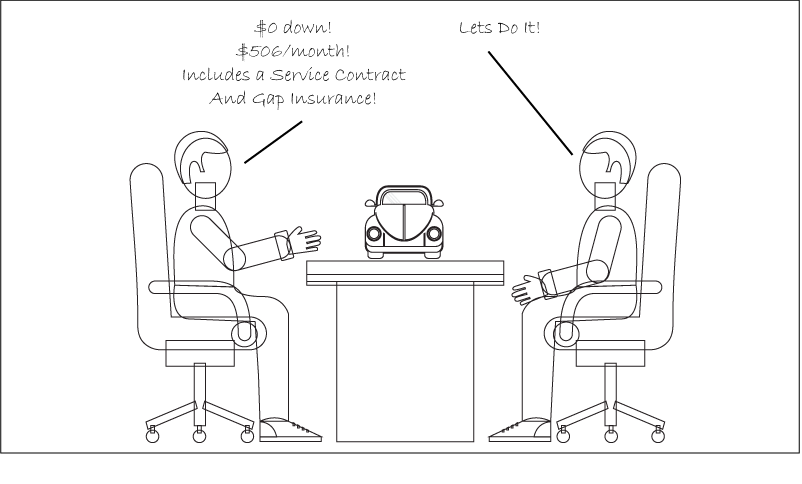
General Information
Life as a California dealer today is much different than it was 20 years ago. In the last five years alone several online startup companies have entered the market thereby increasing competition. DMV has also increased its efforts to enforce state regulations. And finally, there has been a surge in the amount of consumer lawsuits filed against dealers. In other words, dealers have huge targets on their back. The following is a list of important topics you should be aware of with respect to consumer lawsuits.
Consumer Lawsuits
Depending on which education provider you chose for the pre-licensing course you may or may not be fully be aware of your exposure to lawsuits by aggrieved consumers. You may not even be fully aware of your responsibilities as a dealer when selling cars to consumers. California law requires the dealer to adhere to a specific timeline of events before you ultimately hand over the keys of a car to a consumer. If you don’t follow proper directions the consumer can rescind the sales contract and obtain a full refund. We will solely focus on the main recurring hot topics.
California Automobile Sales Finance Act
The California Automobile Sales Finance Act (CASFA) requires any person engaged in the business of selling motor vehicles to execute and provide the buyer with a Conditional Sales Contract (CSC) if the vehicle is bought for use primarily for personal or family purposes, though some exceptions apply. It is required whether the vehicle is sold at a public auto auction, at a dealership for cash or under a financing agreement. Before we get into the CASFA lets go over the general principals of contract law.
Generally, a legally binding contract requires there be of an offer, an acceptance and consideration. However, California dealers cannot enter into a CSC with a buyer until certain conditions set by California law are satisfied. The following is a list of such conditions:
- A dealer shall be responsible for having a smog check inspection performed on, and a certificate of compliance issued for, every motor vehicle offered for retail sale unless an exception applies.
- A dealer shall not sell a used vehicle having a purchase price below forty thousand dollars ($40,000) at retail to an individual for personal, family, or household use without offering the buyer a contract cancellation option agreement that allows the buyer to return the vehicle without cause. Motorcycles and certain recreational vehicles are excepted from this requirement.
- A dealer shall not display or offer for retail sale a used vehicle unless he first obtains a NMVTIS vehicle history report from a NMVTIS data provider. If the report indicates that the vehicle is or has been a junk automobile or a salvage automobile or the vehicle has been reported as a junk automobile or a salvage automobile by a junk yard, salvage yard, or insurance carrier or the certificate of title contains a brand, a dealer shall post a specific disclosure on the vehicle and provide a copy of the report to the prospective buyer upon request prior to the sale.
- Any person engaged in the automotive trade or business who negotiates a conditional sales contract primarily in Spanish, Chinese, Tagalog, Vietnamese, or Korean, orally or in writing, shall deliver to the buyer a translation of the contract or agreement in the language in which the contract or agreement was negotiated, that includes a translation of every term and condition in that contract or agreement. The translation must be provided before the contract is executed.
- Express advertisements of a vehicle’s prior use or ownership history must be accurate. Former taxicabs, rental vehicles, publicly owned vehicles, insurance salvage vehicles and revived salvage vehicles shall be clearly identified as such if the previous status is known to the seller.
- A dealer or any person holding a retail seller’s permit cannot sell a new or used vehicle that is not in compliance with Division 12 of the California Vehicle Code, unless the vehicle is sold to another dealer, sold for the purpose of being legally wrecked or dismantled, or sold exclusively for off-highway use.
- A dealer, who sells, leases, or transfers ownership of a motor vehicle when the vehicle’s ownership certificate is inscribed with the notation “Lemon Law Buyback” shall, prior to the sale, lease, or ownership transfer, provide the buyer with a disclosure statement signed by the buyer.
- Prior to the execution of a conditional sale contract (CSC), the seller shall provide to a buyer, and obtain the buyer’s signature on, a written disclosure that sets forth specific information regarding add-on items.
As you can see there a several steps a dealer must complete before executing a CSC. Failure to adhere to the above requirements gives the consumer cause to file a lawsuit against the dealer. Failure to satisfy any of the above condition precedents renders the CSC an illegal contract and ultimately unenforceable. The consumer will be entitled to actual damages, consequential damages, incidental damages, and attorneys fees if authorized by contract or statute.
Consumer Legal Remedies Act
The Consumer Legal Remedies Act (CLRA) protects consumers against unfair and deceptive business practices by dealers and provides efficient and economical procedures to secure such protections. You should familiarize yourself with the list of unfair or deceptive acts or practices outlined in the CLRA. The majority of lawsuits against dealers stem from misrepresentations made by the dealer, salespersons, or staff. If a consumer asks you a question about the vehicle’s condition, whether it has frame damage, was a former rental car, has rust, or about any other topic you have an affirmative duty to tell the truth. If you omit material facts, give them 50% of the story, or simply lie to them, you can and will most likely be sued under the CLRA.
Thirty days or more prior to filing a lawsuit the consumer must notify the dealer alleged to have employed or committed methods, acts, or practices declared unlawful of the particular alleged violations. The notice must be sent by certified mail and demand the dealer correct, repair, replace, or otherwise rectify the transaction. The consumer is prohibited from filing a lawsuit if an appropriate correction, repair, replacement, or other remedy is given, or agreed to be given within a reasonable time, to the consumer within 30 days after receipt of the notice.
If a consumer wins the lawsuit they are entitled to recover actual damages, punitive damages, costs, expenses, and attorney’s fees. Though each case must be assessed individually to determine whether to contest a lawsuit, it is in the best interest of the dealer to resolve a dispute within 30 days after receiving notice of the problem. Plaintiffs attorneys who represent consumers in these cases charge in the range of $300/hr – $700/hr. It is not unheard of for a dealer to incur a $150,000 judgement at the end of a trial or even a settlement. That could very easily put you out of business and into debt for a very long time.
Car Accidents
Dealers have legal exposure for car accident claims in two scenarios. A dealer who offers a loaner vehicle to a customer or permits a prospective buyer to test drive a vehicle has a duty to confirm whether the driver is licensed for the appropriate class of vehicle to be driven. If the dealer or their representative does not make a reasonable inquiry to ascertain whether the driver has a license, the driver is unlicensed, and he hurts or kills someone in a car accident, the dealership is liable for the accident.
The second scenario involves a dealer who sells a consumer a vehicle that does not conform to Division 12 of the California Vehicle Code. For example, if a dealer sells a vehicle with bad brakes and the consumer hurts or kills someone in an accident because the car could not stop in time or at all, the dealer is liable for the accident.
